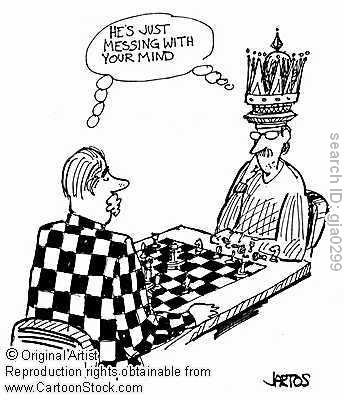
If I have a pet peeve, it is a bad argument. It is always easy to spot a bad argument for God's existence. If someone says anything about about a watch on a beach, then just walk away. However, most people don't know that there has been progress in the philosophy of religion regarding arguments for the existence of God. What? Yup.
How does this happen? One way is that people employ progress in logic to the traditional arguments to improve them. For example, using the axioms of modal logic one can derive God's actual existence from God's possible existence. (I'll show you all sometime). A new spate of arguments also use Bayesian probability to argue that theism is more probable than naturalism.
https://tse3.mm.bing.net/th?id=OIP.Mfbdd39066da6eb4da9da3d2bbbd8ac62o0&pid=15.1&h=150&w=210&P=0
The basic idea is to show that that some common feature of the world is more likely on the hypothesis of theism than naturalism. Here is one way that Bayesian argument improves a classic argument. Let's take the design argument that tries to argue for God's existence based on the common fact of intelligent life. Now, as it is classically stated, the central premise is that it the complexity of life cannot emerge from chance. As is probably obvious, the Darwinian insight undercuts this premise by providing a cleary explanation and evidence regarding the existence of intelligent life. In other words, the weakness of the previous argument is that it is incompatible with evolution.
How does the Bayesian argument make an improvement. Well it allows us to ask whether the fact of intelligent life is more likely on theism or naturalism. The basic idea is to ask "Would you the evidence given the this hypothesis." So, would you expect intelligent life on the hypothesis of theism? Yea...the classical theistic God would likely create intelligent life. What about intelligent life on the hypothesis of naturalism? Nah...there isn't any reason to think that intelligent life is likely in a completely naturalistic universe. In other words, if we were to make a prediction of whether there would be intelligent life, we wouldn't have a strong reason to predict one way or the other.
How is this a better argument? First, it is compatible with Darwinism. It merely says that there is no reason to expect expect intelligent life. I imagine that someone would say, sure there is a reason to expect Darwinism to be true. But we need to be careful that we are not conflating the evidence we already have from what to expect from naturalism itself.
In any case, I am gonna keep moving fast because my point is not to argue for theism. So, for the sake argument let's say that the existence of intelligent life is more likely on theism than naturalism. We could put the argument more formally. So, theism is more likely than nauralism, all else being equal. Now at this point, the conversation moves on to the problem of evil. But atheists...you have a stronger card in your pocket.
The problem with the argument is that it commits the fallacy of understated evidence. This fallacy occurs when specific facts are ignored and only a general fact is put forward. For example, it is a general fact that there is intelligent life. However, it is a more specific fact that there is very little intelligent life in an infinitiely expanding universe. This makes the existence of intelligent life much less impressive. In Bayesian terms, it doesn't raise the posterior probability of theism over naturalism.
If you want to know the slew of how this fallacy is used. Patheos has a quick summary.
At this point in arguments, I usually see atheists reach into the problem of evil bag.
Congratulations @thales! You have received a personal award!
Click on the badge to view your own Board of Honor on SteemitBoard.
For more information about this award, click here
Downvoting a post can decrease pending rewards and make it less visible. Common reasons:
Submit
Congratulations @thales! You have received a personal award!
Click on the badge to view your Board of Honor.
Downvoting a post can decrease pending rewards and make it less visible. Common reasons:
Submit
Congratulations @thales! You received a personal award!
You can view your badges on your Steem Board and compare to others on the Steem Ranking
Vote for @Steemitboard as a witness to get one more award and increased upvotes!
Downvoting a post can decrease pending rewards and make it less visible. Common reasons:
Submit